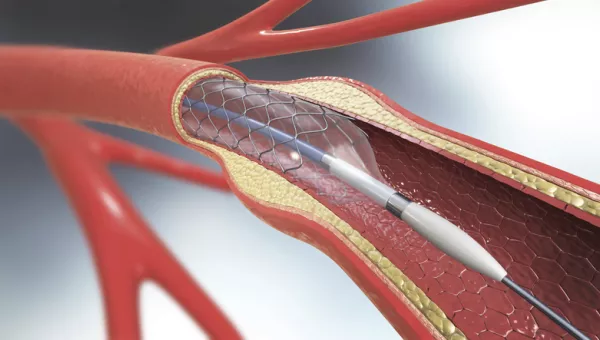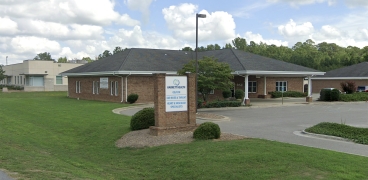Angioplasty at Cape Fear Valley Health
Angioplasty is a minimally-invasive procedure to open up blood vessels that are narrowed or blocked.
Think of your blood vessels like pipes. Sometimes, they can get clogged due to medical conditions such as plaque build-up (atherosclerosis). When this happens in your heart, it can cause chest pain (angina) or even a heart attack.
During angioplasty, doctors insert a tiny tube into the clogged vessel. This tube has a small balloon at its tip.
When the tube reaches the clogged area, the balloon is inflated. This pushes the clog aside, making the blood vessel wider. It's like unclogging a pipe, allowing blood to flow better.
Sometimes, a small wire tube called a stent is also placed in the vessel. This helps to keep it open long-term.
The procedure doesn't require a big cut. You'll be awake but given medicine to relax. Angioplasty can help relieve chest pain and can even save lives during a heart attack.
Am I a Candidate for an Angioplasty?
Before recommending an angioplasty, your doctor will consider your overall health, your symptoms and the location and severity of heart blockages. Angioplasty is often recommended for patients who have:
- Narrowed arteries: Those with arteries narrowed by plaque buildup, a condition known as atherosclerosis.
- Chest pain (angina): Patients experiencing chest pain due to reduced blood flow to the heart.
- Heart attack: Individuals undergoing a heart attack caused by a blocked coronary artery.
- Failed stress tests: Those who have abnormal stress test results indicating reduced blood flow to the heart.
- Symptoms of coronary artery disease: Patients with symptoms such as shortness of breath and extreme fatigue due to reduced blood supply to the heart.
- Previous heart procedures: Patients whose previous bypass surgery or stent placement didn't sufficiently improve blood flow.
- Medication-resistant symptoms: Those who continue to experience symptoms even after trying medications and lifestyle changes.



